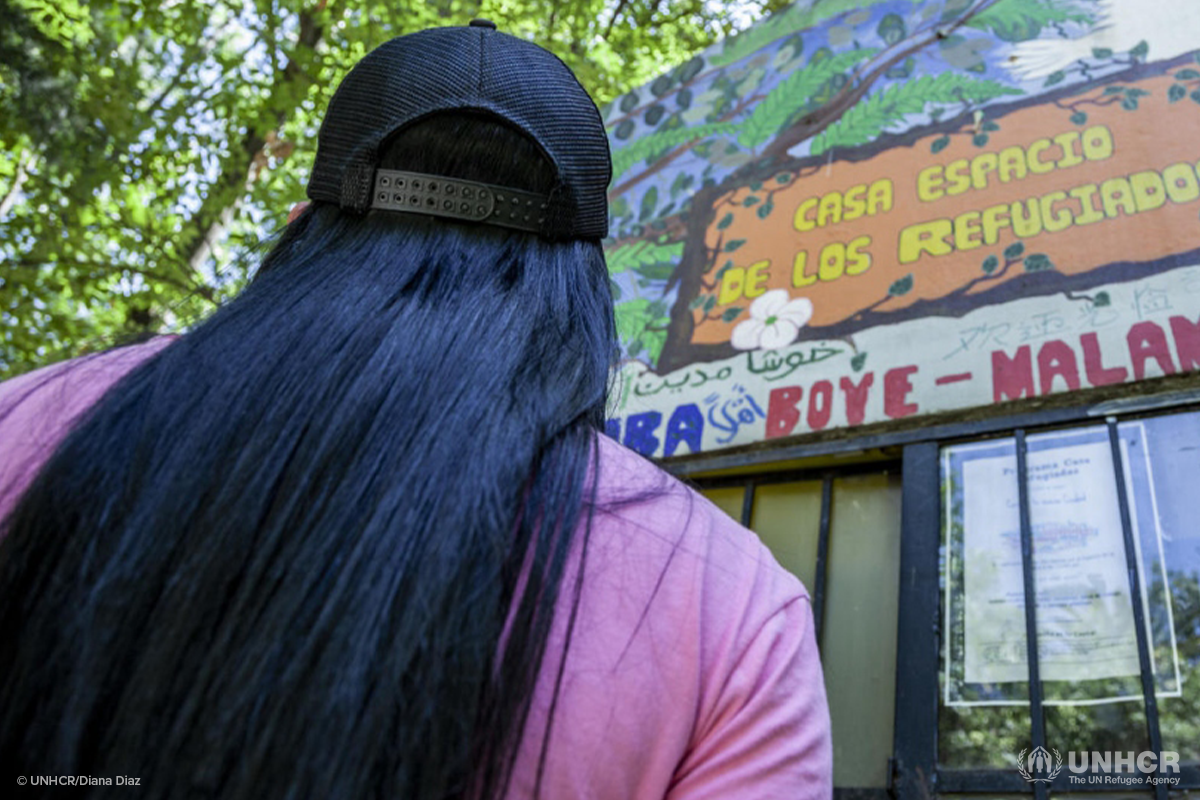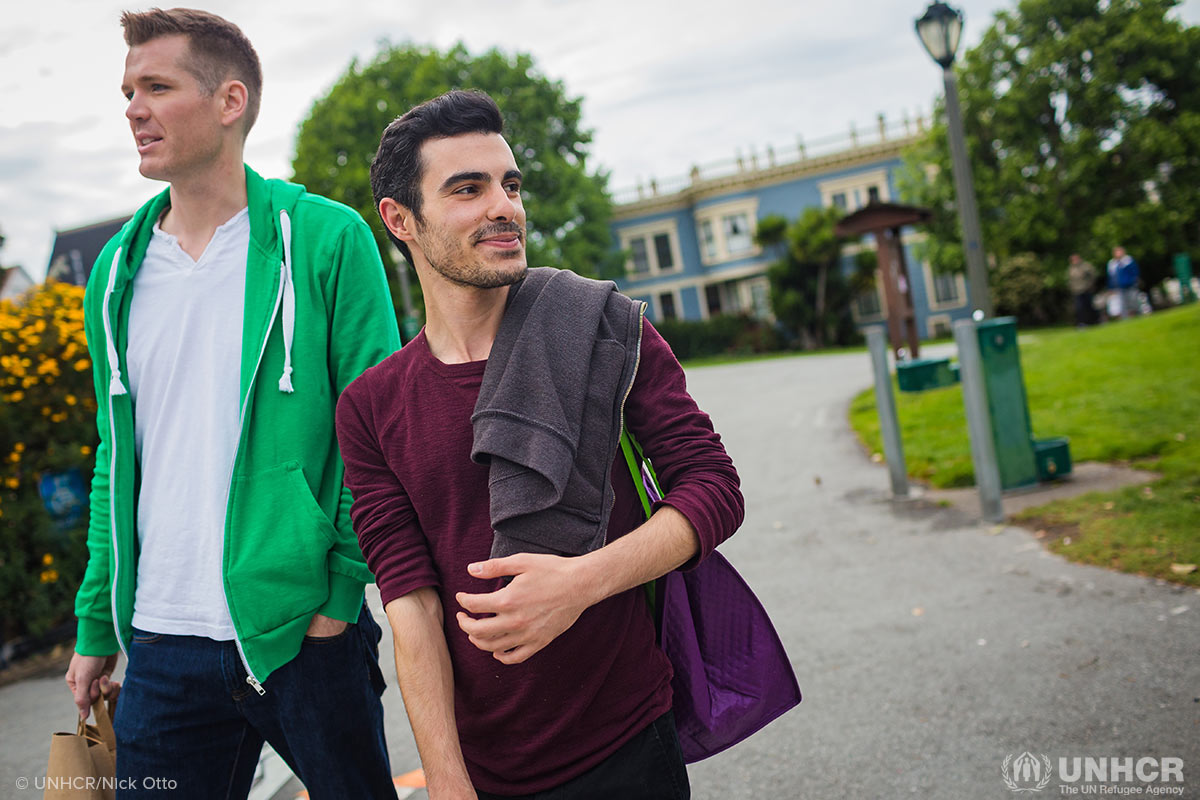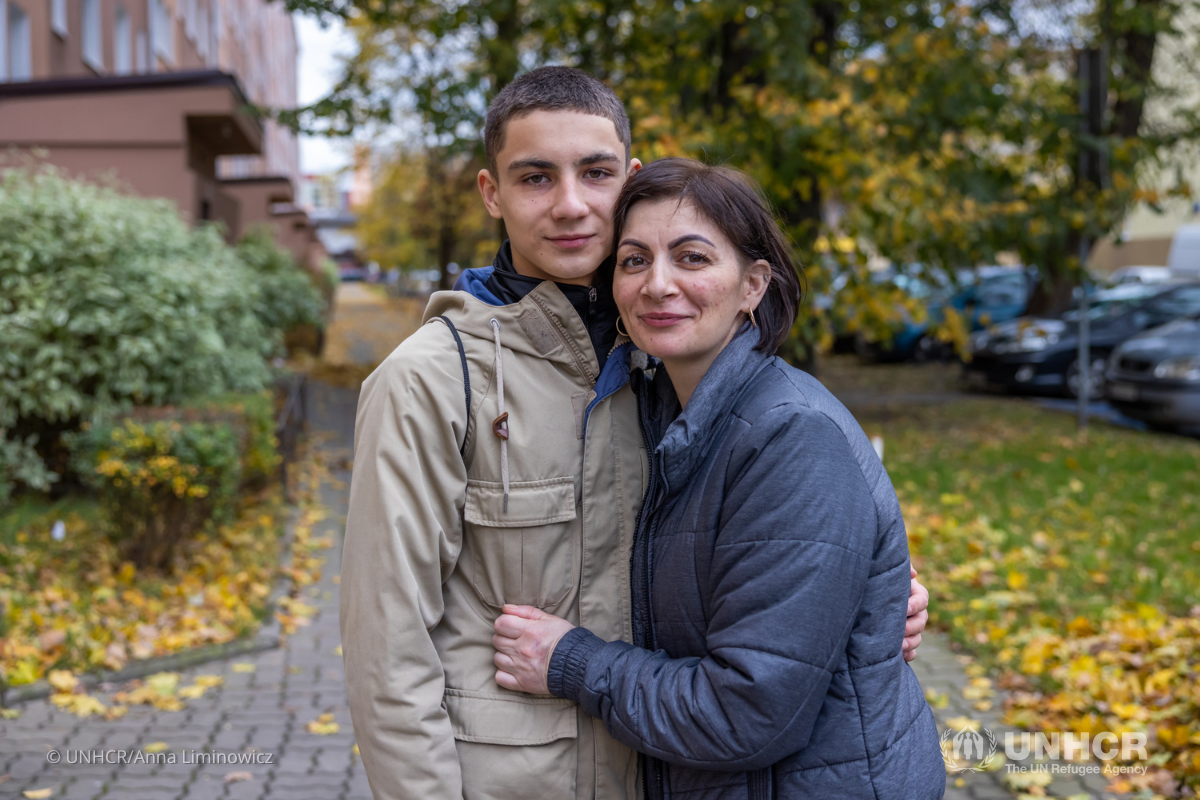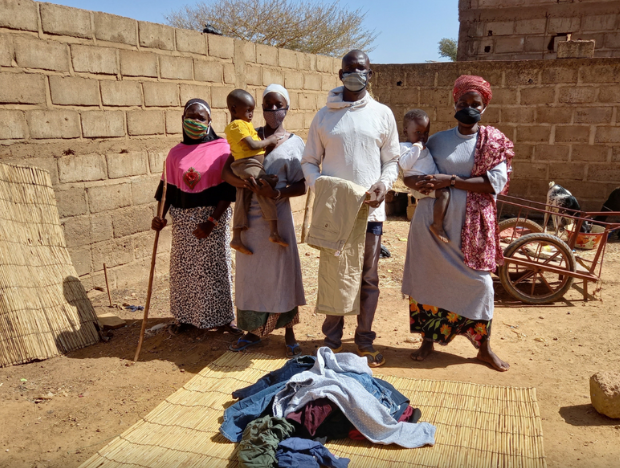International Day Against Homophobia, Transphobia and Biphobia (IDAHOTB) Explained
In a time when we are required to be physically distant from one another, it’s important to remember our sense of unity, community and solidarity. Loneliness and isolation are not uncommon feelings for many members of the LGBTIQ+ community, especially in countries where same-sex relationships or forms of gender expression are socially unacceptable or outlawed entirely.
This year on the International Day Against Homophobia, Transphobia and Biphobia (IDAHOTB), we want to remind LGBTIQ+ refugees around the world that they are not alone. By celebrating and raising awareness about IDAHOTB, you can join us in uplifting LGBTIQ+ refugee voices. Here are five things you need to know:
2. How many countries protect LGBTIQ+ rights?
3. What risks do LGBTIQ+ refugees face?
4. What steps does UNHCR take to protect LGBTIQ+ refugees?
5. Why is resettlement important to LGBTIQ+ refugees?
6. What can I do to help LGBTIQ+ refugees?
1. What is IDAHOTB?
IDAHOTB stands for the International Day Against Homophobia, Transphobia and Biphobia. The observance was created in 2004 to bring attention to the discrimination and violence that members of the LBGTIQ+ community face.
IDAHOTB is currently observed in more than 130 countries around the world. By celebrating those with diverse sexual orientations, gender identities and sex characteristics, the observance hopes to bring these issues to the attention of leaders and decision makers who can help protect the rights of the LGBTIQ+ community.
2. How many countries protect LGBTIQ+ rights?
Although there have recently been great strides in inclusivity and protection rights for members of the LGBTIQ+ community, more than 70 countries have laws criminalizing same-sex relationships and diverse forms of gender expression, and six countries consider them a crime punishable by death.
Even in countries where LGBTIQ+ rights are protected, many find themselves facing backlash. Members of the LGBTIQ+ community often must make the difficult choice between living in secrecy or fleeing their homes.
3. What risks do LGBTIQ+ refugees face?

The LGBTIQ+ community is not homogenous, and every person faces unique risks based on their identity and circumstances. However, those who live in countries that outlaw same-sex relationships and criminalize forms of gender expression face the risk of being arrested and, in some cases, being sentenced to death. On their journeys to safety, LGBTIQ+ refugees can also face increased risks of sexual and physical assault, discrimination and limited access to specific essential resources, including hormone replacement therapy or aid kits appropriate for their gender identity.
Estefanía* lived in Honduras, where being a transgender woman often left her vulnerable to prejudiced, violent attacks. Discrimination against LGBTIQ+ persons like Estefanía is so bad that many aren’t able to work or access basic services.
When she decided to flee with other LGBTIQ+ Hondurans, they were attacked and beaten on their journey. “I was beaten and had to be taken to the hospital. Seven stitches in my head. But it was worth it.” Estefanía was able to apply for asylum in Mexico, where she says people are more open-minded and she has found a community of support.
During the coronavirus pandemic, many LGBTIQ+ refugees will not have access to sanitation supplies and facilities, or will live in conditions that make social distancing virtually impossible. For those who are forced to conceal their identities, they may not be able to access the health services they need, leaving them vulnerable to the virus.
4. What steps does UNHCR take to protect LGBTIQ+ refugees?
Every day, UNHCR, the UN Refugee Agency, is taking steps to improve protection options for LGBTIQ+ refugees. This includes providing LGBTIQ+ refugees with information and resources while remaining discreet. Confidentiality is an important part of protection for LGBTIQ+ refugees, and training UNHCR staff on how to handle cases without endangering a refugee’s identity is essential.
Subhi* is just one of many LGBTIQ+ refugees to flee Syria, where being gay is criminalized. On his journey, concealing his identity was critical to his safety. At one point, he paid a driver double to speak for him at checkpoints. “I knew that militants and guards would think that I was gay if they heard me speak.”
Subhi now lives in San Francisco with his partner, Mark, where he feels like he can begin his life again. “He had to live in fear for so long that sometimes he shuts down, “ said Mark, “and I have to remind him that he is in a safe place.”
Mental health services are also important to assisting and protecting refugees. These services are a cornerstone of aid for all refugees to help them cope with trauma. Creating a safe and welcoming space with comprehensive mental health services that focus specifically on LGBTIQ+ issues can prepare these refugees to move forward with their lives.

5. Why is resettlement important to LGBTIQ+ refugees?
When LGBTIQ+ people flee their homes, they often face violence and discrimination along their journeys. Even after they’ve escaped the initial persecution in their home country, they still have to conceal who they are in neighboring countries or risk facing the same stigma and abuse that they did before.
Resettlement offers a fresh start in a new home with access to resources and communities that may not have been available to LGBTIQ+ individuals before. UNHCR works closely with host communities to ensure newly resettled LGBTIQ+ people feel seen, welcomed and safe.
In many cases, resettled LGBTIQ+ refugees are empowered by their new communities and find ways to give back. From their own experiences, LGBTIQ+ refugees understand the plights of others and can become powerful advocates for refugees and LGBTIQ+ rights in their new countries.
6. What can I do to help LGBTIQ+ refugees?
On the International Day Against Homophobia, Biphobia and Transphobia, you can do your part by speaking up for those who can’t. Millions of people in the world live in secrecy and fear just for being who they are. Today, you can let them know that they are not alone.
By becoming a monthly donor, you can help UNHCR build programs that are inclusive of LGBTIQ+ refugees. Thanks to you, these refugees will be able to reach new homes and communities that welcome them with warmth, love and acceptance.
*Names changed for protection reasons.


